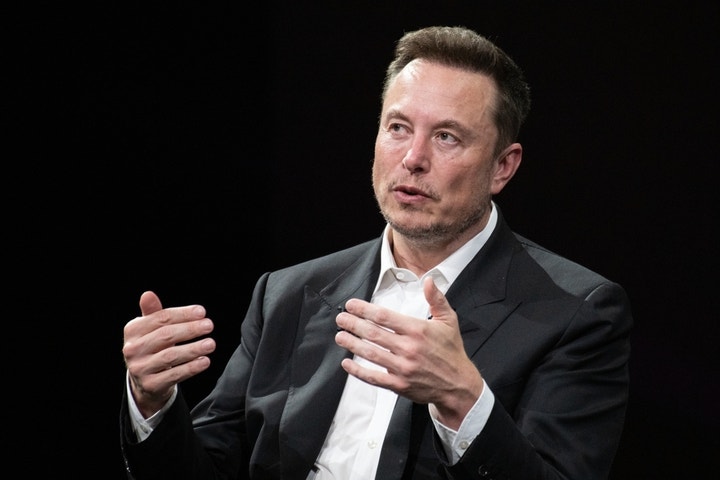Benzinga and Yahoo Finance LLC may earn commission or revenue on some items through the links below.
Elon Musk doesn’t shy away from big questions. Especially not when he’s center stage, livestreaming the launch of what he calls “the smartest AI in the world.” That’s exactly where he was during xAI’s Grok 4 livestream in July, where the Tesla and SpaceX boss wasn’t just showing off artificial intelligence—he was weighing whether it might render humanity obsolete. And somehow, he made it all sound like something you’d want front-row seats to watch play out.
“Will it be bad or good for humanity?” Musk asked mid-stream, before casually answering his own question. “I think it’ll be good. Most likely it’ll be good.” But he didn’t stop there. He followed up with the kind of comment only Musk could make with a straight face: “But I’ve somewhat reconciled myself to the fact that even if it wasn’t gonna be good, I’d at least like to be alive to see it happen.” So yes, even if AI wipes us all out—he still wants a ticket to the show.
Don’t Miss:
That dry, apocalyptic optimism wasn’t just a one-liner. It was part of a broader riff on what happens when AI gets smarter than people—something he says is no longer theoretical. “Grok 4 is smarter than almost all graduate students in all disciplines simultaneously,” Musk said. “This is the smartest AI in the world.” He wasn’t guessing. He sounded certain.
But with that certainty came some very Musk-style unease. “Somewhat unnerving to have intelligence created that is far greater than our own,” he admitted, acknowledging the quiet terror that tends to trail every major AI breakthrough. After all, this isn’t just about chatbots getting better at trivia—this is about machines becoming more capable than the people who built them.
Trending: Microsoft’s Climate Innovation Fund Just Backed This Farmland Manager — And Accredited Investors Can Join the Same Fund
He even took a jab at the whole concept of the human economy, suggesting that in the not-so-distant future, it might look laughably outdated. “The actual notion of a human economy—assuming civilization continues to progress—will seem very quaint in retrospect,” he said. Think cavemen throwing sticks into a fire. That’s where he believes we are now.


